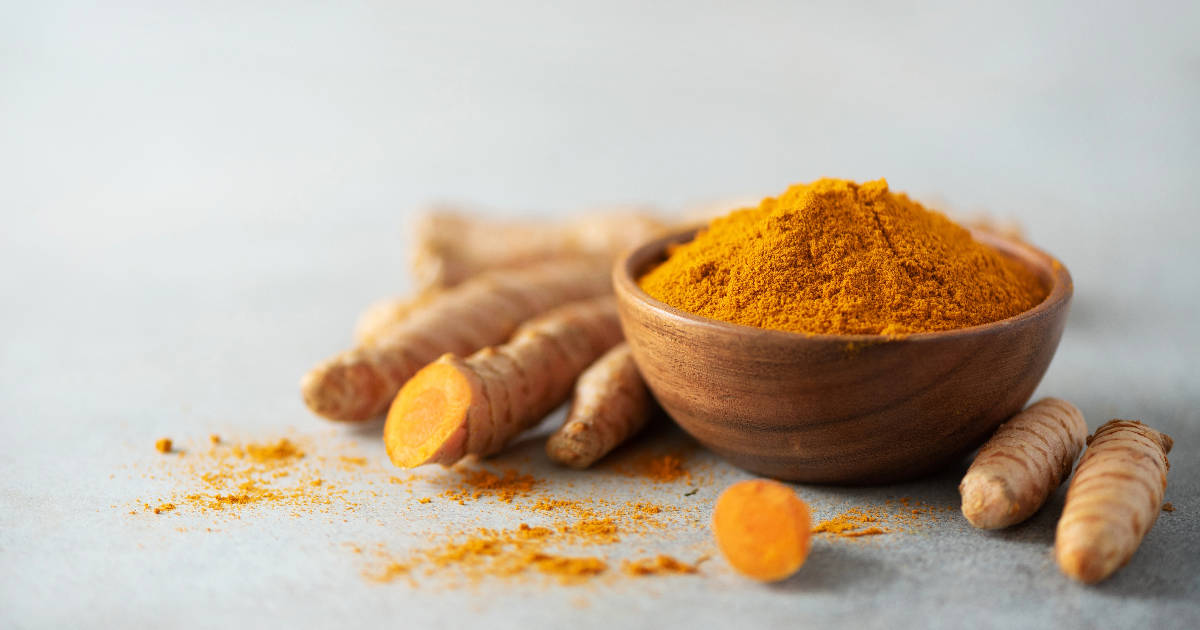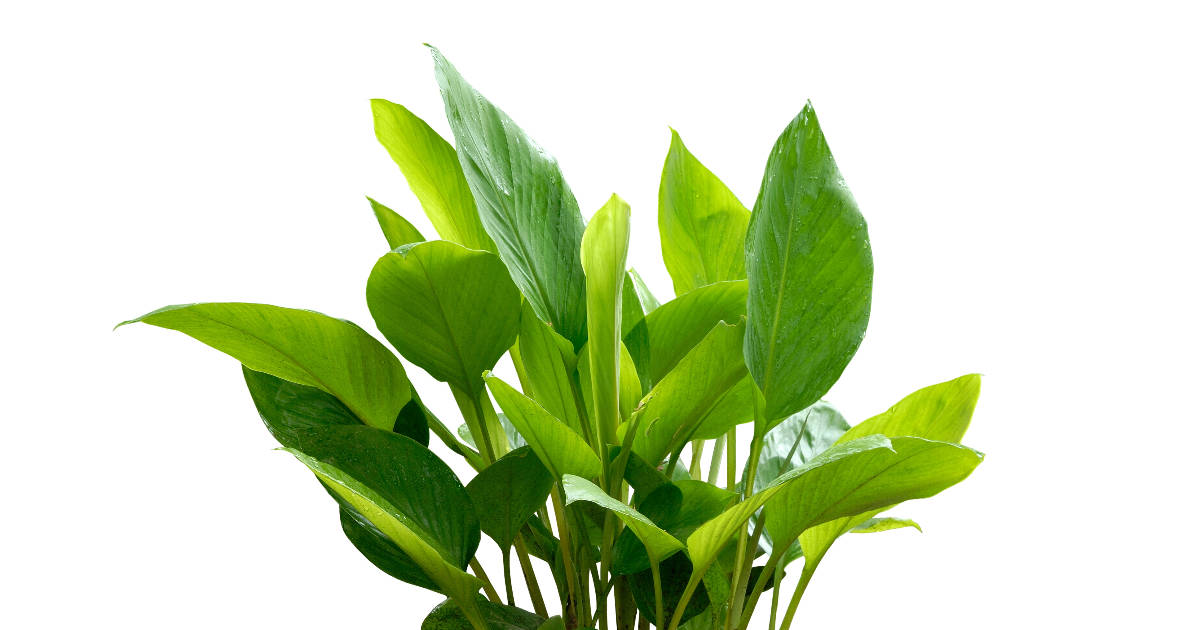Turmeric is a bright yellow spice that has been used for centuries in cooking and traditional medicine.

The ground, dried root of the turmeric plant creates a vivid yellow powder that can provide numerous health benefits.
Read on to learn all about turmeric powder and how to use it.
What is Turmeric?

Turmeric comes from the root of the Curcuma longa plant, which is part of the ginger family. Also known as Indian saffron, this plant is native to Southeast Asia and requires warm temperatures and high rainfall to thrive.
Turmeric has a long history of use, dating back nearly 4000 years to the Vedic culture in India, where it was used as a culinary spice and had religious significance. Turmeric was also utilized in ancient Chinese medicine and Ayurvedic medicine.
The use of turmeric then spread along with Buddhism to countries like Indonesia, Thailand, and Malaysia where it became an integral part of cuisine. It was brought to the Americas and Africa during the 13th century.
Today, India is the largest producer and exporter of turmeric, accounting for about 80% of the world's supply. Other major producers include China, Myanmar, Nigeria, Bangladesh, Pakistan, and Taiwan.
Key Takeaway: Turmeric comes from the root of the Curcuma longa plant, which is part of the ginger family and native to Southeast Asia.
Active Compounds in Turmeric
The vivid yellow-orange color of turmeric comes from curcuminoids, the primary bioactive compounds in the spice.
Curcumin is the principal curcuminoid found in turmeric and makes up around 2-5% of the spice. It provides potent anti-inflammatory and antioxidant properties. Other curcuminoids found in smaller amounts are demethoxycurcumin and bisdemethoxycurcumin.
In addition to curcuminoids, turmeric contains essential oils like turmerone, atlantone, and zingiberone, which provide aroma and therapeutic effects. It also contains proteins, fat, dietary fiber, carbohydrates, and minerals like iron, potassium, magnesium, and manganese.
Key Takeaway: The bright yellow color and health benefits of turmeric come primarily from curcumin, the main active compound.
Culinary Uses of Turmeric
Turmeric has been an integral part of Indian cuisine and Ayurvedic medicine for thousands of years. The earthy, pungent, slightly bitter flavor of this golden spice is a key ingredient in many dishes.
Some of the most common culinary uses of turmeric powder include:
- Curries - It provides the distinctive yellow color and robust flavor.
- Rice dishes - Adds visual appeal and unique taste to rice-based foods.
- Soups - Turmeric elevates the flavor of soups.
- Marinades - The spice can make a flavorful marinade for meats.
- Baked goods - Adds warmth and color to bread, cakes, cookies, etc.
- Smoothies - Blending with fruit provides nutrition and makes the drink vibrant.
- Scrambled eggs - Creates a rich golden hue.
- Salad dressings and sauces - Mixes well with oils and vinegars.
- Butter and cheeses - Imparts an appetizing yellow/orange color.
Turmeric powder is commonly used in curries, rice dishes, soups, and sauces in South Asian, Middle Eastern, and East Asian cuisines. The powder can be purchased on its own or as an ingredient in curry powder. When cooking with the spice, the flavor deepens the longer it is cooked.
Potential Health Benefits of Turmeric
In addition to its culinary virtues, turmeric has also been valued for its medicinal properties throughout history. Modern research has started to uncover the mechanisms behind the long-purported health benefits of this ancient spice.
Key Takeaway: Turmeric has demonstrated health benefits ranging from reducing inflammation to protecting against chronic diseases.
Anti-inflammatory
Chronic inflammation is believed to be a major driver of many common diseases. The curcuminoids in turmeric have consistently shown powerful anti-inflammatory properties.
By inhibiting inflammatory enzymes and cytokines, turmeric can potentially help relieve inflammation related to arthritis, metabolic syndrome, neurological conditions, and more according to research.
Antioxidant
The curcumin in turmeric neutralizes free radicals and enhances the body's antioxidant capacity. This can minimize oxidative stress that can lead to cell and tissue damage over time.
Studies indicate turmeric's antioxidant effects may bolster immunity, reduce risk factors for cardiovascular conditions, and protect against neurodegenerative diseases.
Improves Arthritis Symptoms
Thanks to its ability to control inflammation, multiple studies have found turmeric supplements can reduce joint pain and improve physical functioning in people with osteoarthritis.
The anti-inflammatory effects of curcumin hold promise for relieving pain and stiffness related to rheumatoid arthritis as well.
Heart Health
The anti-inflammatory and antioxidant properties of curcumin have shown potential for promoting heart health. Studies indicate that turmeric can improve endothelial function, regulate lipids, and reduce plaque buildup in the arteries.
These vascular effects may lower the risk of atherosclerosis, heart attack, and stroke according to some small trials. More research is needed to confirm the cardiovascular benefits.
Brain Function
Some research has linked curcumin to increased BDNF (brain-derived neurotrophic factor), which is a protein involved in brain cell communication and growth.
By boosting BNDF and fighting inflammation and oxidative stress, turmeric may help diminish age-related cognitive decline and protect against neurodegenerative diseases according to some studies.
Cancer
A few laboratory and animal studies have found curcumin can block the growth and spread of cancer cells. The antioxidant and anti-inflammatory activity of curcumin is thought to modulate cancerous cell signaling pathways.
However, human trials are limited and more research is required to confirm if turmeric has anti-cancer benefits in people. It should not replace standard cancer treatments.
Diabetes
Turmeric has been shown to improve insulin sensitivity and reduce insulin resistance in some studies. These antidiabetic effects could potentially lower blood sugar and prevent complications related to chronic high blood glucose.
That said, human data is limited, and turmeric should not substitute diabetes medication without medical guidance.
How to Select and Store Turmeric Powder
You can find turmeric powder at any grocery store, usually in the spice section. It is also widely available at health food stores, ethnic markets, and online.
When selecting turmeric powder, look for packages labeled 100% turmeric. Avoid "color enhanced" products with additives.
The powder should have a vivid, golden orange hue. Dull or greyish powder is stale. It should have a strong aromatic, almost peppery fragrance.
For maximum freshness and potency, buy turmeric powder from a supplier with high product turnover. Check the expiry or best before date and choose the package with the longest shelf life.
Once at home, store the turmeric powder in an airtight glass jar in a cool, dark place away from heat and sunlight. Kept properly, the ground spice will remain fresh for up to 1 year.
How Much Turmeric Powder Should You Take?
When using turmeric for cooking, there is no specific dosage to follow. The amount can vary based on recipe and personal taste. Most recipes call for 1/4 to 1 teaspoon of turmeric powder.
Turmeric supplements contain concentrated doses of curcumin and other active compounds. The optimal supplemental dosage is still under investigation. Many studies use curcumin dosages between 500-2000 mg daily in divided doses.
Consult your doctor for advice on finding a turmeric or curcumin supplement with an appropriate dosage for your health needs. Follow label directions carefully.
Potential Side Effects and Safety
Consuming turmeric in culinary amounts is considered safe for most people. But some people can experience side effects when taking large doses of turmeric supplements or powder.
Potential side effects may include:
- Upset stomach or diarrhea
- Increased acid reflux symptoms
- Iron deficiency
- Interference with anti-coagulant medications
- Excess menstrual bleeding
- Kidney stones
- Rash or itching
Turmeric supplements are not recommended for those with gallbladder issues, stomach ulcers, bleeding disorders, hormone-sensitive conditions, or undergoing surgery.
Pregnant and breastfeeding women should not take turmeric supplements but can eat spices foods. Discontinue use of turmeric supplements at least 2 weeks before any scheduled surgery.
FAQ
What does turmeric taste like?
Turmeric has a warm, bitter, slightly pungent flavor profile. It also provides a unique earthy, musky aroma. The taste is difficult to describe but adds complexity to food.
What is the difference between turmeric and curcumin?
Turmeric is the spice made from grinding dried turmeric root. Curcumin is the main bioactive compound found in turmeric that gives it the yellow color and medicinal effects.
Is it better to take turmeric or curcumin supplements?
Curcumin supplements provide higher concentrations of the active curcuminoids. But the curcumin in turmeric supplements is usually better absorbed, especially when combined with piperine from black pepper.
Can you replace turmeric for saffron?
Saffron and turmeric both provide a vivid yellow-orange color. Turmeric has its own distinct bitter, pungent flavor but is sometimes used as an inexpensive substitute for the far costlier saffron spice.
How long does turmeric powder last?
If stored properly in an airtight container in a cool, dark place, turmeric powder will keep its potency for up to 1 year. Look for packages with longer expiration or best-by dates for maximum freshness.
Conclusion
Turmeric powder is more than just a flavorful, vividly hued spice. It has a long history of use for health and wellness thanks to compounds like curcumin.
Integrating moderate amounts of turmeric into your daily cooking can provide antioxidant and anti-inflammatory benefits.
But talk to your doctor before taking turmeric supplements, especially in high doses. With its culinary versatility and broad spectrum of potential therapeutic effects, turmeric is a bright addition to any diet.

